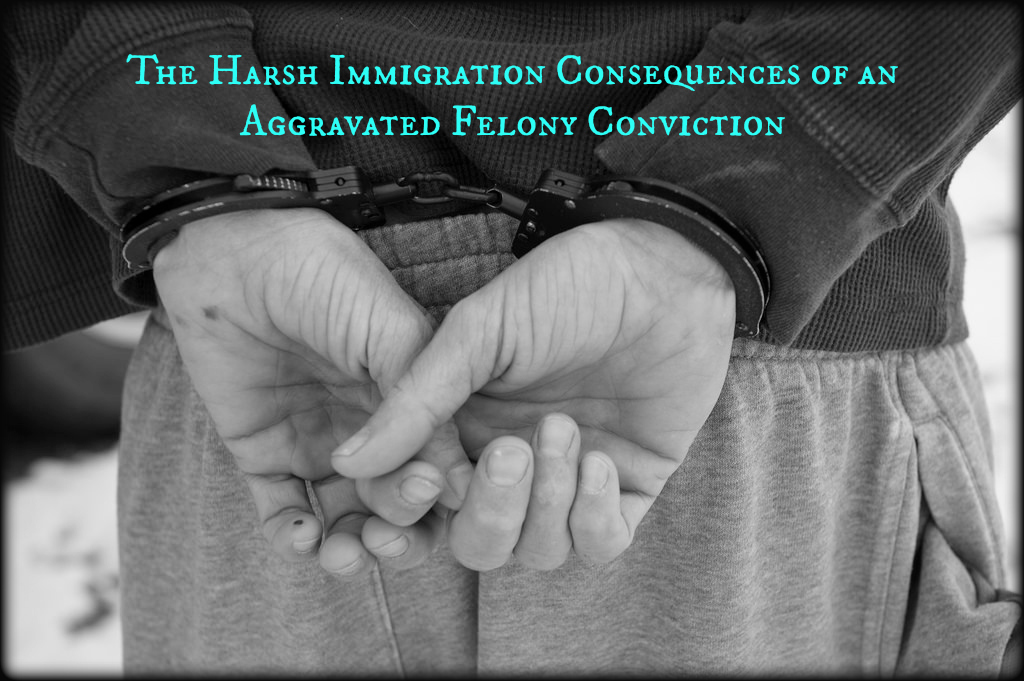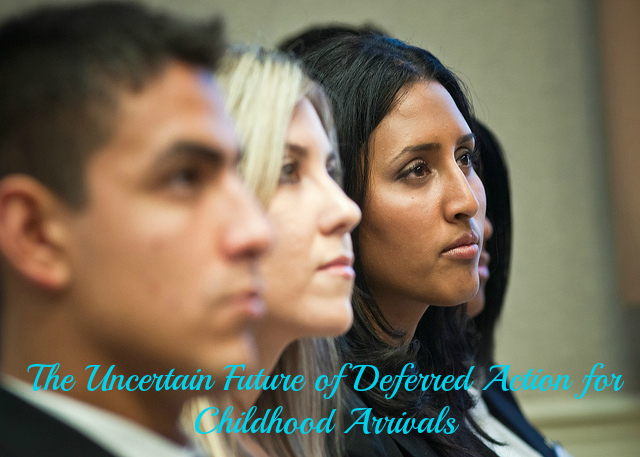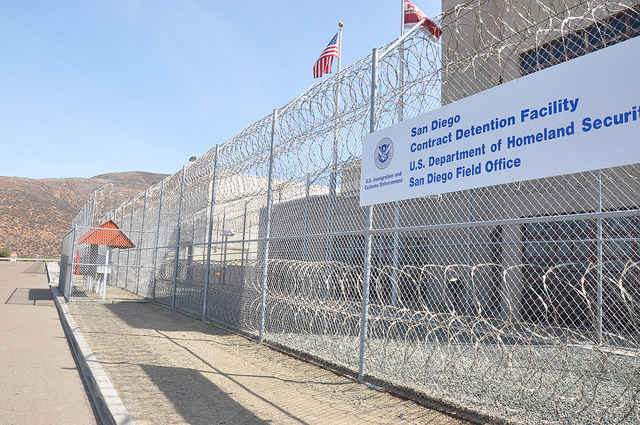On the heels of being named “Person of the Year” by TIME magazine, a new interview with President-elect Donald J. Trump reveals new information regarding the former business tycoon’s stance on illegal immigration. As we have previously reported, throughout his campaign the President-elect Donald Trump vowed to crackdown on illegal immigration, claiming that he would deport the 11 million undocumented immigrants residing in the United States unlawfully during. Among other things, Trump also campaigned on the platform that he would end the Deferred Action for Childhood Arrivals (DACA) program once and for all; a program which to this date has shielded hundreds of thousands of young undocumented persons from deportation, and provided them with temporary work authorization. The lives of these young undocumented immigrants have in large part been shaped by the passage of DACA, and the false sense of security it brought them. Today, their lives are in a very fragile state, with the uncertain future of what may happen to this program under a Trump administration, and the looming possibility of their removal from the United States, given that USCIS now possesses vital information regarding their identities and whereabouts. Ever since his election, Trump has desperately attempted to unite the nation. His administration has endeavored to pick up the broken pieces that were left behind by his polarizing campaign rhetoric. In recent months, we have seen Trump dramatically soften his stance on immigration in what may be described as futile efforts to unify the country.
Articles Posted in Undocumented Immigrants
The Harsh Immigration Consequences of an Aggravated Felony Conviction
One of the most common questions we often receive during in person and telephonic consultations is whether an aggravated felony may decrease a person’s chances to legalize their status in the United States. The harsh reality is that the immigration options for noncitizen aliens convicted of an “aggravated felony” are severely limited, and in most situations, the immigration laws of the United States subject these individuals to the harshest deportation consequences. Even if you have been lawfully admitted to the United States or are currently a Legal Permanent Resident (LPR) you may be subject to deportation if you commit an aggravated felony. In other words, so long as you are a noncitizen alien, you may be at risk of deportation if you are or have been convicted of what is considered an “aggravated felony” in the United States or any other country. What’s more, aggravated felons lose many of the privileges that are designed to provide relief to individuals from deportation, and in some cases these individuals may be prevented from re-entering the United States permanently, following removal from the United States. The immigration laws of the United States, passed by Congress, contain numerous provisions that are designed to keep criminals outside of the United States, and in turn prevent criminals from being allowed to remain in the United States. While Congress has recognized that there are few exceptions to the rule that should be made in cases where there is a compelling argument to be made in favor of allowing a person found guilty of an aggravated felony to remain in the United States, having taken into consideration the fact that an immigrant’s removal may result in extreme hardship for U.S. Citizens. Unfortunately, these exceptions are very few and far in between, and deportation is the most probable outcome. When it comes to crimes of moral turpitude and crimes that fall under the category of “aggravated felonies” the U.S. immigration system is very unforgiving.
What is an aggravated felony?
An aggravated felony is a term that describes a particular category of offenses that carry with them harsh immigration consequences as punishment for noncitizen aliens who have been convicted of these types of crimes. Noncitizens who have been convicted of an aggravated felony lose the opportunity to apply for most common forms of relief available to law abiding noncitizens, that would have shielded them from deportation. Noncitizens who have been convicted of an aggravated felony for example are ineligible to apply for asylum and may not be readmitted to the United States in the future. An “aggravated felony” is an offense that Congress has labeled as such, and does not actually require the crime to be considered “aggravated” or a “felony” to qualify to be an “aggravated felony.” In other words, the term must not be taken literally. Many crimes that are labeled “aggravated felonies” are nonviolent in nature and constitute minor offenses, nonetheless these crimes fall under the Congressional categorization of an “aggravated felony.”
The myth of what constitutes an “aggravated felony”
For purposes of immigration law, an offense does not need to be considered “aggravated” or a “felony” in the place where the crime was committed to be considered an “aggravated felony” under the Congressional definition of “aggravated felony.” There are numerous non-violent and trivial misdemeanors that are considered aggravated felonies per the immigration laws of the United States. At its inception, the term referred to crimes that were of a violent and non-trivial nature including such crimes as murder, federal drug trafficking, and illicit trafficking of firearms. Today, Congress has expanded the types of crimes that fall under the category of “aggravated felonies” to include non-violent crimes such as simple battery, theft, the filing of a false tax return, and failure to appear in court when summoned. To view the complete list of aggravated felonies under the Immigration and Nationality Act please click here. Other offenses that fall under this category include sexual abuse of a minor, although some states do not classify these crimes as misdemeanors or criminalize such behavior for example in cases of consensual intercourse between an adult and a minor. In most situations, a finding of any of these offenses will result in the loss of most immigration benefits, and in cases where the noncitizen is already a legal permanent resident or is in lawful status, the noncitizen will be subject to deportation.
Where is expanded DACA and DAPA now?
On June 23, 2016 the United States Supreme Court made headlines when it affirmed a federal court’s decision in United States v. Texas, preventing the expansion of the Deferred Action for Childhood Arrivals (DACA) program and Deferred Action for Parents of Americans and Lawful Permanent Residents (DAPA) program. An eight-person bench delivered a single one-line decision on the ruling stating, “the judgment of the lower court is affirmed by an equally divided court.” This controversial decision ultimately resulted in the halt of the expansion of the DACA and DAPA programs, leaving these programs in legal limbo. The DACA and DAPA programs were first introduced by President Barack Obama two years ago, as part of a series of executive actions on immigration. With the passage of these programs, the Obama administration hoped that the Republican controlled House of Representatives would be persuaded to discuss the issue of comprehensive immigration reform. This effort proved fruitless. Republican Congressmen and women not only refused to pass comprehensive immigration reform, they politicized the issue of immigration altogether, blocking the President’s Supreme Court nomination following the sudden death of Justice Antonin Scalia, in order to prevent the Supreme Court from becoming liberal. Together, these programs would have shielded nearly five million undocumented immigrants from deportation by giving them “deferred status,” and would have provided applicants with a temporary three-year employment authorization card. Although these measures proved short of an amnesty, they were made in response to Congress’s refusal to pass meaningful immigration reform for the undocumented population living in the United States.
The expansion of the DACA program would have increased the population eligible to apply for employment authorization to people of any current age, who had entered the United States before the age of 16, and who could demonstrate continuous residence in the United States since January 1, 2010. Similarly, the DAPA program would have shielded millions of parents of U.S. Citizens and Lawful Permanent Residents from deportation if they could demonstrate continuous residence in the United States since January 1, 2010, and pass the required background checks.
The Uncertain Future of DACA Discussed
There is no denying that the election of Donald Trump as next President of the United States has dealt a huge blow to the immigration reform effort and diminished any hope for the passage of broader legal immigration reform. We had hoped that with the election of Hillary Clinton we would see an increase in immigration levels for highly skilled workers, as well as increased visa opportunities for entrepreneurs and investors. While the news of Donald Trump’s election was a big setback for immigration in general, polling continues to suggest that people across the United States are willing to support fairness in dealing with the undocumented immigrant population in a sensible and human way. By contrast, most Americans disapprove of passing broad legal immigration reform that would benefit foreign workers.
Donald Trump was able to win the favor of a great number of Americans because of his critical view of programs like NAFTA that he believes has allowed American jobs to go overseas. Trump has blamed the U.S. government for allowing programs like the H-1B worker program to exist, saying that foreign workers are taking American jobs. We can expect to see Donald Trump take a restrictive view on legal immigration, keeping immigration levels within historic norms. Donald Trump has until recently softened his tone on illegal immigration, claiming that his priority is to deport only dangerous criminals residing in the United States unlawfully, although his 10-point plan contradicts his recent stance.
It is likely that the Republican House and the Senate will introduce legislation designed to benefit American workers and the economy, and focus less on creating immigration opportunities for foreign workers. Similarly, the Trump administration will likely focus on job creation, and less on passing any meaningful legal immigration reform.
The program that may come under fire by the Trump administration is the Deferred Action for Childhood Arrivals (DACA) initiative which began on June 15, 2012 as part of an executive order introduced by President Barack Obama. Donald Trump has repeatedly said that he wants to end the Deferred Action for Childhood Arrivals (DACA) program incorrectly calling it an “amnesty.” In actuality, DACA is not amnesty and does not provide a pathway to permanent residency or even citizenship. DACA merely shields the individual from deportation and allows them to legally obtain employment in the United States for a temporary period of time.
Understanding the 3- and 10-year Bars of Unlawful Presence and the New Rule Expanding I-601A Eligibility
For persons who have entered the United States illegally or who have accrued unlawful presence after having overstayed their visa, the possibility of obtaining lawful permanent residence (a green card) is very limited. In the United States there are generally two ways to adjust status to permanent residence. With few exceptions, a green card may generally be obtained through employment-based sponsorship, or family sponsorship based on a qualifying family relationship, such as a U.S. Citizen or Legal Permanent Resident relative. Unlawful presence is a very serious immigration offense that is subject to punishment depending on the amount of time a person has accrued unlawful presence in the United States.
Undocumented immigrants who accrue unlawful presence in the United States, and subsequently leave the country, and attempt to re-enter the United States lawfully, may be subject to either a 3- or 10-year bar, based on the amount of time they have accrued unlawful presence in the United States. Specifically, under the Immigration and Nationality Action Section §212(a)(9)(B)(i)(I) a person who has accrued more than 180 days of unlawful presence in the United States, is subject to a 3-year bar automatically triggered once the person departs the United States. The bar would thereby prevent a person from being re-admitted into the United States, depending on the amount of time they were previously unlawfully present in the country. Similarly, under the Immigration and Nationality Act §212(a)(9)(B)(i)(II), a person who has accrued one year or more of unlawful presence in the United States, is subject to a 10-year bar preventing a person from being re-admitted to the United States, once they have departed from the United States.
Elizabeth, New Jersey to Offer Municipal ID Card Program for Undocumented Immigrants
New Jersey’s 4th largest city, Elizabeth, is soon to become one of several municipalities in New Jersey to offer photo identification cards for the undocumented immigrant population, and other underserved members of the community such as homeless persons. On Tuesday, city council members voted unanimously to approve a city ordinance benefitting undocumented immigrants who do not have any form of photo identification. A second and final vote on the ordinance is expected next month. According to the U.S. Census nearly half of the residents of Elizabeth, New Jersey are foreign-born persons. Elizabeth is only one of many cities in New Jersey that has considered adopting a municipal identification card program. Recognizing that New Jersey is home to a large population of undocumented immigrants, various cities in New Jersey already have a municipal identity card program incorporating the undocumented immigrant population into society. New Haven, Newark, Roselle, Perth Amboy, Highland Park, Asbury Park, Trenton, and many other cities have adopted some form of municipal identification card.
The photo identification cards will provide basic information including the person’s name, date of birth, address, and an expiration date. Only persons 14 years of age or older will be able to obtain these photo identification cards. Although these cards will not be a form of federal identification, and do not confer any type of immigration benefit, or employment authorization, having access to a photo identification is very important for the undocumented immigrant population for various reasons. First, it is nearly impossible to obtain certain benefits without a valid photo identification. For example, many undocumented immigrants are unable to open a bank account, access basic government services, enter government buildings, fill prescriptions, obtain medical care, enroll in adult courses, or receive state benefits they are entitled to, but cannot receive without presenting a valid photo ID. Second, this measure will be especially important for persons who cannot obtain a driver’s license, passport, or other government issued ID by any other means. Third, because many undocumented immigrants cannot open a bank account since they do not have a form of identification, undocumented persons are often targeted as walking ATMs because they carry large amounts of cash.
Immigration Highlights of the Final Presidential Debate Clinton v. Trump
Yesterday, October 19th the third and final Presidential debate took place in Las Vegas, Nevada. This was the last opportunity Presidential candidates, Donald J. Trump, and Hillary R. Clinton, had to present their positions on various different issues, and make a final attempt to gain the support of undecided voters. The debate has left much to talk about, while many questions still remain unanswered. The moderator of the debate, Chris Wallace, of FOX news questioned the candidates on various different topics ranging from the Supreme Court nomination, economy, foreign policy, and more importantly the candidates’ positions on immigration reform.
On the subject of immigration, the moderator introduced his question on immigration by providing an overview of each candidate’s positions on immigration. Wallace discussed the fact that throughout his campaign, Donald Trump has staunchly advocated for mass deportations and the building of a more secure border, which he believes will successfully deter undocumented immigrants, criminals, and terrorists from entering the United States.
By contrast, Wallace highlighted the fact that Hillary Clinton has offered no specific plan on how she would secure our southern borders, where there is currently a massive influx of immigrants, specifically unaccompanied children from Central America, seeking refuge in the United States. Wallace reiterated Hillary Clinton’s commitment to offer a comprehensive immigration reform package within the first 100 days she is in office that includes a pathway to citizenship for undocumented immigrants, with proven ties to the United States.
Each candidate was asked to discuss why their immigration policy is the best, and why their opponent is wrong. Donald Trump was given the first opportunity to respond. Trump opened the conversation on immigration by taking the position that providing amnesty for undocumented immigrants would be a ‘disaster’ for various different reasons. First, he stated that it would be unfair for undocumented immigrants to be given a path to citizenship, while immigrants wishing to enter the United States legally, are forced to wait many years to obtain permanent residence. Second, he emphasized that securing our country’s borders is his number one priority. Trump bolstered his claim that strong borders are necessary, by referring to mothers he had met on the campaign trail, whose children were brutally killed by people he claims entered the country illegally. He also stated that for the first time ever he has been endorsed by 16,500 Border Patrol Agents, as well as ICE who share in his belief that our country needs strong borders. Third, Trump claims that strong borders are necessary to deter the thousands of people who are coming into the country illegally, and to prevent drugs from pouring into the United States. Lastly, he stated that the war on drugs is the biggest problem the United States is facing today, thus in his view this presents an even greater obligation to secure our borders. He blamed the Obama administration for its failure to deter illegal immigration, illicit drugs from coming into the United States, and for allowing criminals to enter the United States.
What’s New in Immigration? DHS Report on Border Security, Update on the Proposed Entrepreneur Rule, and More!
In this segment, we bring you the latest immigration news. This month, the U.S. Department of Homeland Security released a status report on border security in the Southwestern border region. In other news we provide you with an update on the Proposed International Entrepreneur Rule, and finally we would like to remind our readers to tune into the final Presidential Debate on October 18th.
Department of Homeland Security Releases Report on Border Security for the Southwestern Border Region
On October 17, 2016 the Secretary of the U.S. Department of Homeland Security, Jeh Johnson, released a report on the state of border security in the Southwestern region of the United States for fiscal year 2016. The Secretary reported that the total apprehensions by border patrol on the southwestern border have increased, relative to the previous fiscal year. During fiscal year 2016 there were a total of 408,870 unlawful attempts to enter the United States border without inspection by a border patrol officer. Although the number of apprehensions during this fiscal year were higher than the previous year, the number of apprehensions in fiscal years 2013 and 2014 were much higher than fiscal year 2016. Johnson also reported that illegal migration in this region has changed demographically. Today, there are fewer Mexican foreign nationals and adults attempting to cross the Southwestern border illegally. The problem now is that more families and unaccompanied children from Central America are making the dangerous trek from Central America to the United States, fleeing gang related violence, organized crime, and poverty. In 2014 for the first time in history, the number of Central Americans apprehended on the Southern border outnumbered Mexican nationals. The same phenomenon occurred during fiscal year 2016.
How is DHS dealing with the influx of undocumented immigrants from Central America?
DHS is struggling to deal with this humanitarian crisis. Thus far the United States has implemented an in-country referral program for foreign nationals of Honduras, El Salvador, and Guatemala. The program gives certain immigrants the opportunity to apply for refugee protection in the United States. DHS has also expanded the categories of individuals that may be eligible for the Central American Minors program, although adults may only qualify for this program if they are accompanied by a qualified child. The Government of Costa Rica and the United Nations High Commissioner for Refugees and the International Organization for Migration have developed a protection transfer agreement to relocate unaccompanied children and their families to safer regions. DHS was given $750 million in Congressional funds this fiscal year to provide support and assistance to this vulnerable population of migrants. Johnson recognized that there is much work to be done to secure and border, while at the same time addressing the need for comprehensive immigration reform.
USCIS Announces New Parole Policy for Eligible U Visa Principal and Derivative Petitioners Residing Abroad
We are pleased to announce that USCIS will adopt a new parole policy, at the recommendation of the Ombudsman’s office, for U visa principal petitioners and their derivative qualifying family members residing abroad, who are currently on waiting lists for the availability of U Visas. As a result of this new policy, eligible applicants will be able to seek parole into the United States and await availability of their U visas from the United States, instead of waiting from abroad.
The U visa was first implemented with the passage of the Victims of Trafficking and Violence Protection Act signed into law by Congress. This piece of legislation gave USCIS the authority to implement a special nonimmigrant visa classification known as the U visa. Presently, the U nonimmigrant visa is available to foreign nationals who have either been a witness to a crime in the United States, or who have suffered substantial mental or physical abuse as a victim of a crime that occurred in the United States. The U visa in effect creates a special class of nonimmigrants who may legally reside in the United States for the purpose of assisting law enforcement, or government officials, in ongoing investigations for the prosecution of certain crimes. Unfortunately, there is a congressional limitation on the number of U visa’s that may be issued to principal U visa applicants. That limit is currently capped at 10,000 visas on an annual basis.
Once the 10,000 visa cap has been exceeded, U visa nonimmigrants are forced to remain abroad, and are placed on a waiting list. In order to expedite their entry to the United States, applicants must go through the extra step of applying for humanitarian parole from abroad in order to enter the United States. Such victims are often in danger or in vulnerable situations in their home countries. Most importantly their key testimony and cooperation is of no use to the United States if they are residing abroad.
Department of Homeland Security Considers Ending Privatization of Immigration Detention Facilities
The U.S. Department of Homeland Security is expected to run a study to determine whether privately run detention facilities are unsafe for migrants. The Secretary of the Department of Homeland Security, Jeh Johnson, has stated that the administration will evaluate whether or not the agency will end the practice of privatizing immigration detention facilities, issuing a recommendation by November 30th of this year.
The announcement comes following reports that private immigration detention facilities have unlawfully withheld proper mental health and medical care from persons being detained in their immigration facilities. Presently, the two major private companies running ICE immigration detention facilities across the United States are the Corrections Corporation of America and the GEO Group. Together these private companies hold lucrative state and federal government contracts. It is estimated that the Corrections Corporation of America has earned $689 million alone from its contracts with ICE dating back to 2008, while the GEO Group has earned an estimated $1.18 billion from these contracts during that same period.
 Visa Lawyer Blog
Visa Lawyer Blog











